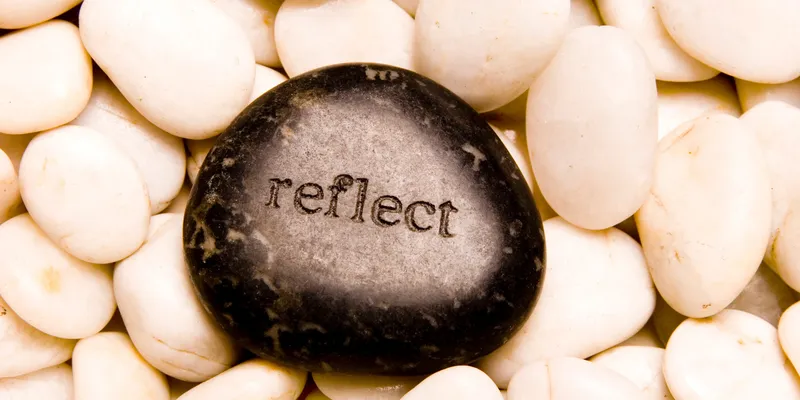Skip resolutions: Start 2025 with a self-audit instead
Want to win big this year? Try doing a self-audit to see real improvements in your life!
As the new year begins, many of us feel the pressure to set big resolutions—lose weight, get fitter, save more money, or even become more organised only to find ourselves feeling defeated by February. This cycle happens year after year, but what if there was a better way to approach growth and self-improvement?
Instead of setting vague and often unrealistic resolutions, try conducting a self-audit. This process of self-reflection and introspection is not only more effective but also fulfilling for long-term growth.
It helps you focus on what really matters to you, rather than falling into the trap of societal expectations. So, instead of chasing fleeting resolutions, why not give yourself the gift of self-reflection this year? In today's article let's learn how to do a self-audit!
Why should you do a self-audit?
A self-audit offers a reflective and personalised approach to growth, encouraging you to look back on the past year with self-compassion and identify areas for improvement based on your experiences.
Unlike typical resolutions driven by external pressures, a self-audit helps you gain deeper insights into your strengths and challenges, enabling you to set specific, actionable goals that are aligned with your core values.
This focused process not only helps you create realistic and achievable goals but also cultivates emotional resilience, as you acknowledge both your successes and struggles. By reflecting on the past, you can set more realistic expectations for the future and develop a mindset that is more forgiving and understanding of yourself, paving the way for long-term success.
How to do a self-audit: A step-by-step guide

1. Picture what you want
Start by defining what you want to achieve with your self-audit. Are you focusing on personal growth, career performance, or financial health? For example, if you want to improve your productivity, your plan could be to actively find methods that work for you such as the Eisenhower matrix.
2. Get the real data
Next, collect all the relevant data that will help you assess where you stand. This could include performance reviews at work, bank statements, health reports, or feedback from friends and colleagues. The more comprehensive the information, the clearer your understanding of what’s working best for you.
3. Check your performance
Now it’s time to take a good, honest look at yourself. For instance, if you’re doing a career audit, ask yourself: “Am I satisfied with my progress?” “What are my strengths at work?” “Where could I improve?”
This step is about recognising your wins and areas where you can do better. Be specific—whether it's about improving time management or enhancing communication skills, this reflection helps you understand how close you are to your goals.
4. Write down a report
Write down your reflections and observations. For example, you can note down details of your behaviour like “I have saved more money this year, but I still struggle with impulse buying.” This documentation is valuable because it serves as a reference to track your growth over time and keep you accountable.
5. Take action
Based on what you have discovered, prioritise where to focus your efforts. If one of your areas of improvement is time management, make a plan to organise your day, like setting aside time blocks for home chores and hobbies.
6. Reflect and repeat
Self-audits should not be one-time events. Regularly reflect on your progress—maybe every six months or at the end of the year. This ongoing review allows you to keep growing and adjusting your goals. For example, after three months of improved time management, you might notice other areas to focus on, like mental health.
The takeaway
So, this year instead of jumping into traditional New Year’s resolutions, why not try a self-audit? Rather than aiming for big, unrealistic goals, a self-audit encourages you to reflect on what truly matters to you and set goals that align with your values. This approach gives you a clearer sense of purpose and a more realistic plan for long-term happiness. So, skip the pressure of resolutions and give yourself the gift of self-reflection—you will thank yourself later.








